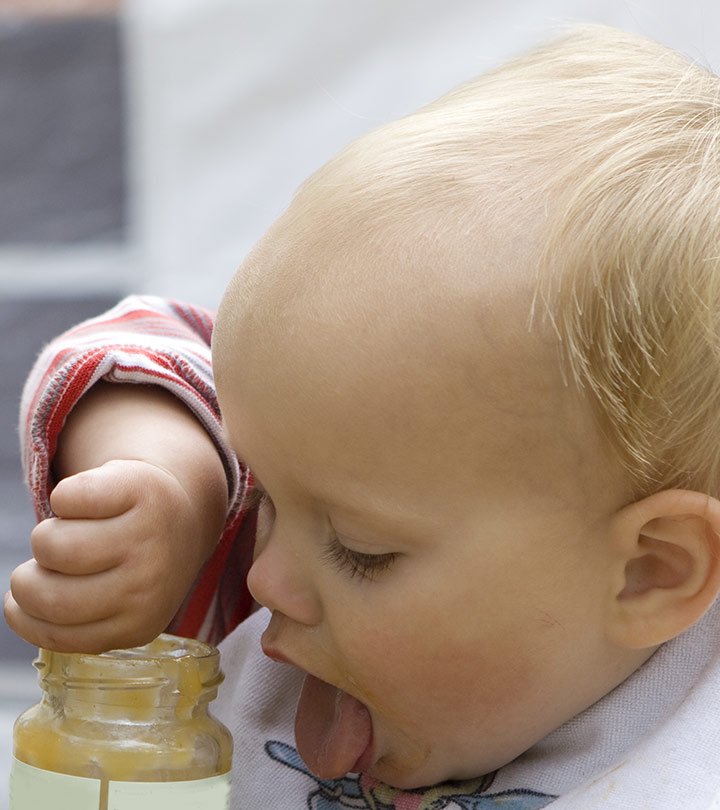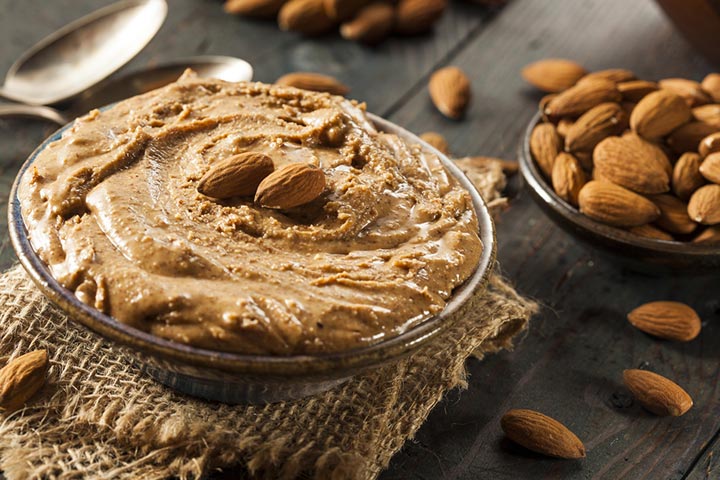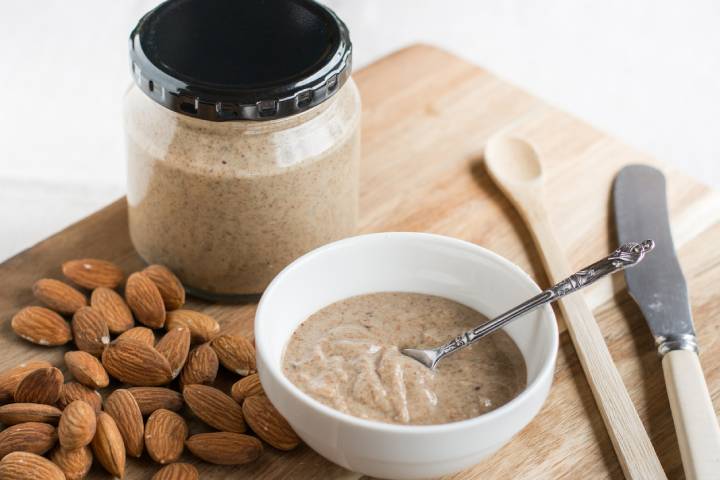Every parent strives to provide a healthy, nourishing diet to their infants. Opting for nutritious food choices like butter for babies may provide sufficient calories and keep them interested in food. Also, babies need abundant food sources and sufficient nourishment to meet their daily energy requirements and support their growth and developmental processes. If your baby has started solid foods, you may plan to introduce some delicious yet power-packed foods like almond or peanut butter in their weaning food diet. Keep reading to understand the safety and benefits of introducing these naturally gluten-free kinds of butter for babies.
Butter Power For Your Baby
Perhaps you are a vegan family, or you have dairy intolerance running in your family, and are worried that your baby might also have inherited it. For either reason, you are considering baby food like mashed banana or some soaked toast with some nut butter for a healthy punch. But wait; is it really good for your baby?
Yes, it is! But you do have to keep few things in mind, such as:
- Make sure your baby is not allergic to nuts.
- Do not go overboard; as these fatty butters can play havoc on the little one’s tummy.
The most popular non-dairy butters are peanut and almond butter, so let’s see how they can benefit your baby’s development.
Is “Peanut” Butter Good For Babies?
Peanut butter is a very popular nutrient-dense butter with a thick, creamy texture. You may love this zinc-rich addition to your toast or porridge as a breakfast, but when it comes to giving it to your baby, there’s a lot of controversy involved.
- Some experts believe that it is best to give up the idea of introducing peanut butter to babies, while others believe it is safe to introduce it to them at an early age itself (1).
- Peanut allergies are affecting more and more people, and there is a chance that your baby could be affected by the allergy too. According to the American College of Allergy, Asthma & Immunology (ACAAI), peanuts are one of the eight common foods that account for 90% of all allergic reactions.
- In such a scenario, introducing your already vulnerable baby to a spoonful of this plant-based food could turn out to be potentially dangerous. As the parent, you should make the best decision here.
How To Introduce Peanut Butter To Your Baby?
Due to peanut butter’s thick consistency, mixing one to two teaspoons of butter with two to three teaspoons of water is recommended to make the consistency thinner and more suitable for your baby. Administering thick lumps of peanut butter is not advisable as it might be a choking hazard for your baby.
After giving peanut butter to your little one, observing them for about ten to 15 minutes is advised to ensure there are no signs of any allergic reactions (2).
Is Almond Butter Safe For Babies?
Almond butter has a texture and taste that is quite different from that of peanut butter. It is calcium-rich but not as thick as peanut butter, and may even contain certain bits of almonds in it.
- While almond butter is mineral-rich and does have many health benefits associated with its use, the chunky version may present a choking hazard to smaller babies who are just learning to consume solid food (3).
- Almond butter is vitamin-rich and a source of high protein and fats, both of which are needed by your baby, but is safe for consumption only if you or your spouse don’t have a history of almond allergies, and if the butter is smooth.
- In case you are not really aware of your baby’s sensitivity to particular nuts, offering him almond butter could trigger off allergic reactions, which may turn out to be dangerous.
- You are therefore advised to be very careful while introducing almond butter during this age.
When To Introduce These Butters To Your Baby?
It is important to first check if you have any history of peanut allergies yourself, or running somewhere in your or your spouse’s family. Only then should you introduce homemade baby food with these butters.
- Since these butters are sticky, and for many small infants, it may turn out to be a choking hazard, it is recommended that you introduce it to your child only after he crosses 18 months of age.
To ensure the baby doesn’t choke on peanut butter, Charisma, a mommy blogger, has a helpful approach. She says, “I do make sure that I don’t spread the peanut butter too thick, as that could gunk up the windpipe. I cut one-inch squares of toast for her. It is easier for her to eat and less messy since she isn’t squishing peanut butter in her fists. (i).” - Make sure you use good quality peanut butter from a reputed brand as only such butter is ideal for infant nutrition.
- Keep track of your baby’s bowel movements and digestion after you’ve introduced peanut butter to the baby for the first time, and if you do find something unusual (loose stools, diarrhea, etc.), get your baby’s health checked with your general practitioner.
Butter Recipes For Babies
Here are some baby-friendly recipes of peanut and almond butter:
1. Peanut butter puree (4)
You will need:
- 2tsp peanut butter
2-3tbsp plain yogurt or pureed fruit or vegetable
How to:
- Mix the peanut butter with yogurt or any fruit or vegetable puree.
- Blend without any lumps
- Add more water for a thin consistency.
2. Almond butter pudding
You will need:
- 1 ripe banana
- 3tbsp Greek yogurt
- 1tbsp almond butter
- ¼tsp cinnamon
How to:
- Blend all the ingredients until smooth.
- Transfer the mixture to your baby’s bowl and serve.
We hope this article gave you a clear picture about how to proceed with introducing butter for babies.
Do you have any particular healthy eating recipes for wholesome food items that use nut butters and work out wonderfully for children? Do share them in the comments box below.














